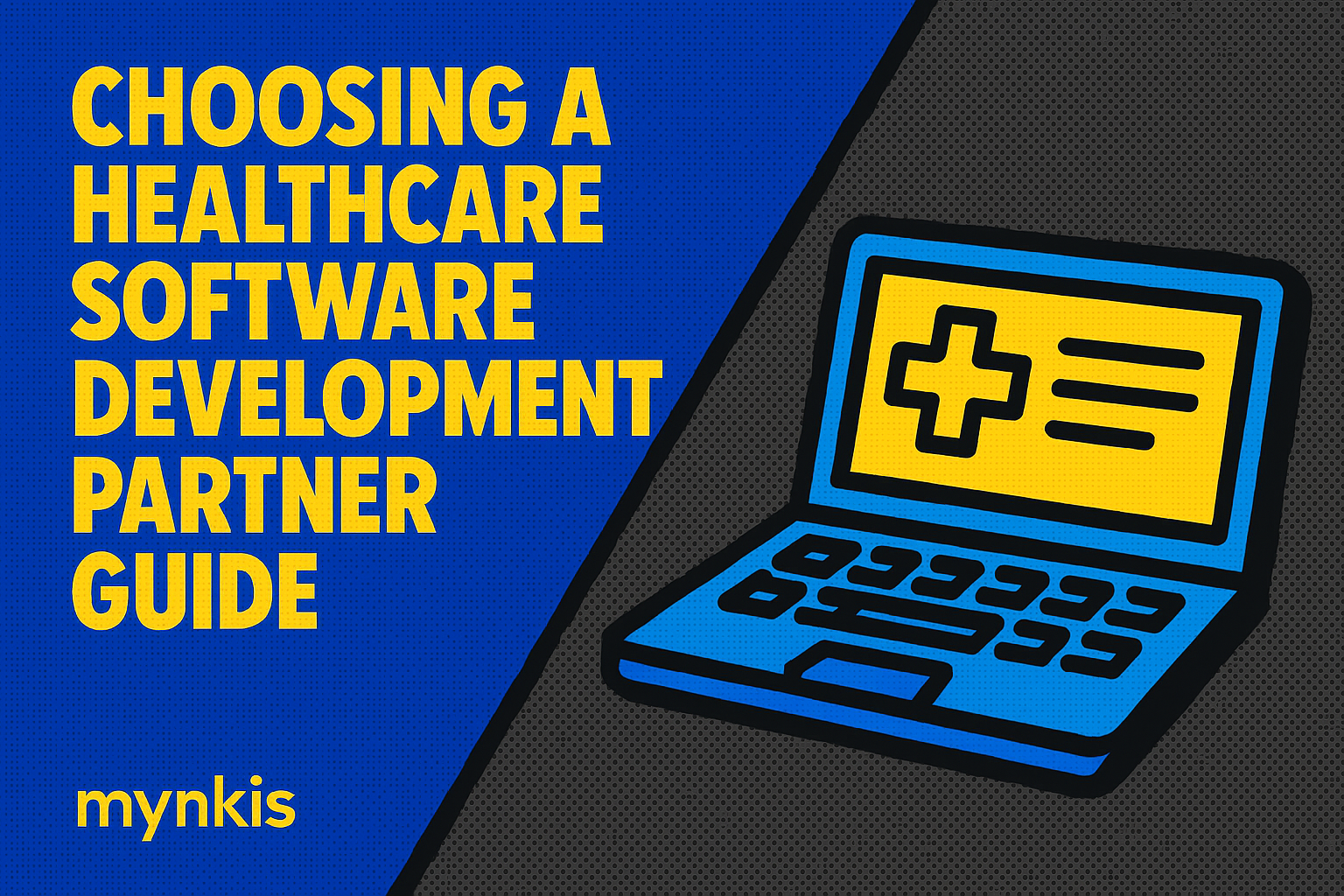Schedule a Demo
The healthcare sector demands robust, secure, and compliant solutions more than any other industry. From patient portals that enable easy access to personal health records to backend systems handling sensitive data, the stakes are incredibly high. I've personally witnessed how seamless software integration can significantly improve both the operational efficiency and the quality of patient care in clinics and hospitals. However, selecting a software development partner isn't just about finding someone who can code; it's about finding a partner who understands and navigates the regulatory landscape of healthcare with ease and proficiency.
When I'm consulting with healthcare clients on selecting their development partners, I emphasize several key criteria that should guide your decision. Firstly, ensure your prospective partner has experience in custom software development for healthcare. This sector's specificities require not just technical know-how, but also a deep understanding of healthcare workflows and compliance standards such as HIPAA.
Secondly, delve into their past projects. Have they developed enterprise web solutions for similar establishments? What was their impact on those projects? According to a recent Harvard Business Review analysis, firms with substantial healthcare IT experience tend to reduce implementation times by nearly 30%, which can significantly enhance your project's ROI.
Finally, don't overlook security and compliance. Your software must be robust against data breaches, which are especially catastrophic in healthcare. Ensure your partner has a track record of deploying secure systems and understands the nuances of healthcare data privacy laws.
In my experience, one of the most overlooked aspects when choosing a development partner is their approach to project management and communication. Effective software development for healthcare isn't just about technical skills; it's also about managing expectations and keeping you informed every step of the way. Your partner should employ clear, systematic project management practices, ideally adhering to frameworks like Agile that foster flexibility and continual feedback.
Engaging with your development team should feel like a partnership rather than a transaction. In selecting your partner, consider whether they take a collaborative approach. Are they prepared to spend the time necessary to understand your unique needs and challenges? Without this, even the most technically proficient team can falter in delivering a solution that meets your specific healthcare operations requirements.
Healthcare is a dynamic sector where regulations, technologies, and needs can change overnight. When choosing a software development partner, consider not just the immediate project at hand but also how they will support your needs as your organization grows. The right partner will build custom software development solutions with scalability in mind, so your platform can evolve as your requirements shift.
The ability to future-proof your systems is crucial. With emerging technologies and evolving standards, can your chosen partner integrate advancements like AI diagnostics or wearables? Similarly, how will they approach compliance with new regulations? It's about partnering with a company that not only solves your current challenges but also helps navigate future hurdles.
It's tempting to base your decision on cost, but in healthcare software development, you must look at the bigger picture. I've guided clients who chose the cheapest option only to face costly rework later due to compliance issues or inadequate security. Therefore, focus on the long-term value rather than the initial sticker price. Consider the potential costs of implementation, support, and upgrades over time.
Conversely, don't let premium pricing alone lead you to a decision either. Higher prices do not always equate to better quality or a better fit for your healthcare needs. Engage in detailed discussions with potential partners about cost structures and expected outcomes. As per Gartner's 2023 IT Services Cost Optimization research, true value comes from aligning your vendor's capabilities and commitments with your strategic goals.
Learning from other's experiences can be incredibly enlightening. When I consult with healthcare providers, I often recount the story of a hospital system I worked with that partnered with a bespoke developer. They transformed their patient portal, which was initially clunky and non-compliant, into a robust platform that markedly increased patient satisfaction and streamlined operations. By selecting the right partner, this hospital saw a 40% increase in portal use, which significantly enhanced the hospital's operational metrics.
Another clinic tackled data security issues by choosing a development team proficient in healthcare compliance. They were able to implement a secure solution that passed rigorous HIPAA audits, negating previous risks of data breaches. These real-world stories underscore the importance of selection criteria when embarking on enterprise web solutions in healthcare.
The process of selecting a software development partner should be systematic and well-informed. Start by shortlisting vendors based on their experience, reputation, and portfolio in healthcare. Engage in discovery sessions to discuss your requirements in depth, aligning them with potential partners' capabilities and approaches.
Once you have a shortlist, request proposals outlining how each vendor will approach your project, including timelines, resources, technologies, and projected outcomes. This stage should help you differentiate between good fits and best fits for your project.
Finally, conduct reference checks and consider site visits or virtual demonstrations of past projects. Transparency from your prospective partner, combined with real-world evidence of their effectiveness, is invaluable in making an informed decision about who will helm your crucial healthcare software development.
With all the information at hand, the final decision must factor in not only technical competencies but also the cultural fit and long-term relationship prospects. A software development partner in the healthcare space needs to be seen as an extension of your team, closely aligned with your mission to provide exceptional patient care.
Reflect on the strategic alignment between your vision and the vendor’s business model and values. Consider their willingness to invest in understanding your organization’s intricacies. Choosing a partner for custom software development and enterprise web solutions should be approached with the same level of care you give your patients—thoroughly, attentively, and with a focus on the long-term health of your operations.
